



CHAPTER 15
CHAPTER 49
CHAPTER 69
CHAPTER 87
 uestioning the authenticity of the Koranic text these days smacks of blasphemy, of a particularly sacrilegious act with regard to one of the principal dogmas of Islam-if not the most important one, after belief in God and in his Prophet. However, the taboo that envelops the question of the history of the Koran has no theological justification that emanates from the revealed text-nor even a historical rationale, since Muslim Tradition itself relates an imposing mass of information about the very serious problems that have affected transmission of the Koranic text down to our own day.
uestioning the authenticity of the Koranic text these days smacks of blasphemy, of a particularly sacrilegious act with regard to one of the principal dogmas of Islam-if not the most important one, after belief in God and in his Prophet. However, the taboo that envelops the question of the history of the Koran has no theological justification that emanates from the revealed text-nor even a historical rationale, since Muslim Tradition itself relates an imposing mass of information about the very serious problems that have affected transmission of the Koranic text down to our own day.
But the most astonishing aspect of the tense attitude of Muslim orthodoxy is that it contradicts the very doctrine that the Koran itself has formulated about its own authenticity. In effect, far from claiming any textual authenticity at all, the Koran advances a theory of revelation that resolutely refutes such a claim.
This Koranic doctrine explains that the revealed text is merely a secondary product emanating from a primary and authentic text that has been recorded on a celestial tablet kept by God and inaccessible to common mortals. The true Koran is not the one that has been revealed, but the one that has remained in heaven in the hands of God as sole true witness of the revealed text. In short, the Koran attributes authenticity not to the text revealed through Muhammad, but only to the original kept by God. This means that the passage from the heavenly original to the copy betrays the letter of the transmitted text. Muhammad did not receive the revelation by means of dictation, but by means of inspiration (wahy).
Moreover, the revealed text was subject to the law of abrogation and to divine editing, in such a way that the Koran is neither eternal nor absolute. It is historical, circumstantial, and relative. Other factors distance it from the authentic heavenly text: God orders Satan to inspire false revelations from the mouth of Muhammad, and then he denounces them. Moreover, the Prophet is subject to certain human weaknesses-again, according to the Koran.
Thus it is important to bring to light this Koranic doctrine about the inauthenticity of the revealed text.
In effect, at the death of the Prophet, the text of the revelation found itself consigned onto several mediums: parchments, scapular bones, shards, and other chance materials. By all the evidence, the idea of gathering these scattered texts into a single compendium was a rather late innovation, unknown to Muhammad and foreign to the spirit of the Koran. Only a shaping of revealed textual units saw the light of day during Muhammad's lifetime. These units of revelation gave rise to the current surahs by a process that has still not been elucidated, but which is partially visible through the mysterious letters that open certain chapters.
Muslim Tradition maintains that a first collection of the Koran was carried out by the first caliph, Abu Bakr. A fresh collection was undertaken under the third caliph, Uthman. What did such a "collection" consist of? In fact, opinions on this subject vary, and nothing certain has come down to us. The situation is all the more obscure in that a third collection is supposed to have taken place during the reign of the Umayyad governor al-Hajjaj.
Whatever these incoherences within Muslim doctrine about the history of the Koranic text, it is clear that the establishment of an official text of the Koran was the end result of a long progression, whose stages can only be deduced approximately and with great prudence on the basis of stories reported in Muslim Tradition.
In short, the first generations of Muslims did not possess the Koranic text of reference, since one had never existed. As consolation, tradition purely and simply created the myth of the archangel Gabriel meeting Muhammad annually for a clarification of the texts revealed in the course of the preceding year. Thus it was that upon the death of the Prophet that the Koranic text found itself entirely codified, structured, and completed according to divine wishes: the "collections" that took place later have brought nothing new, according to certain stories; they have merely rectified the alterations that intervened during the first decades of Islam. This is the mythical orthodox doctrine about the reliability of the transmission of the revealed text.
In parallel with this idealist justification, Muslim Tradition has bequeathed us indications that are very useful for the historian of the Koranic text, on the condition (of course) that one knows how to decode them. It is on the basis of this material that critical study of the Koranic text began in the West through a magisterial book (which remains even today a reference work) by Theodor Noldeke, Geschichte des Qorans, or The History of the Koran, published for the first time in 1860, and reissued in 1909 by Friedrich Schwally, an edition continued in 1919 with the second volume and in 1938 by Gotthelf Bergstrasser. It inspired in 1958 the excellent Introduction au Coran by the French scholar Regis Blachere.
Alongside this historical critique of the Koran, a new scholarly research avenue arose around the middle of the twentieth century, devoted to the study of the literary genres employed in the sacred text of Islam. Again it was the German school that led the way in this new orientation, essentially inspired by a discipline in which it excelled, that of Formgeschichte, of which Rudolf Bultmann (1884-1976) was one of the leading figures. Let me mention the series of articles published in 1950 in the journal The Muslim World titled "The Qur'an as Scripture," which prefigured the important contribution of John Wansbrough in his Quranic Studies. Wansbrough studied the schemas of the Koranic discourse and compared them to the Jewish tradition. His demonstration of a solidly structured discourse suggests in effect that it was continuing an old scribal tradition. Henceforth the text of the Koran appears less as the result of an improvisation issuing from the desert than as the continuation of a lofty tradition.

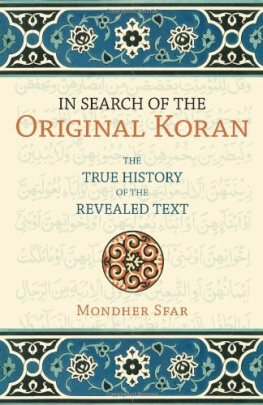
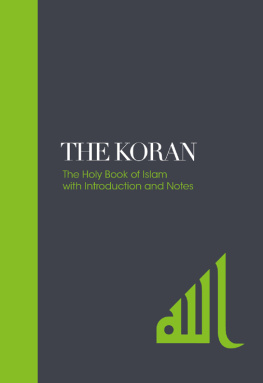

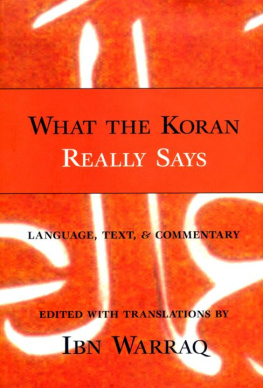
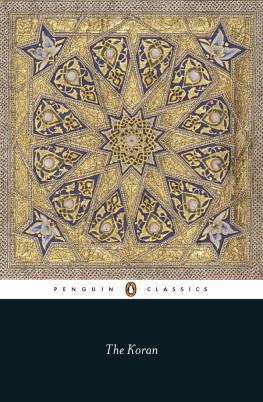
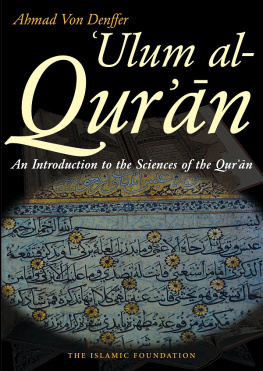
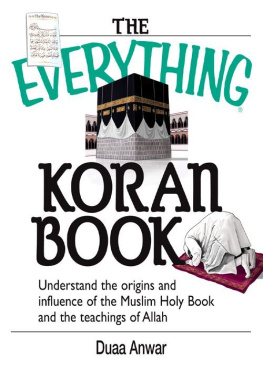
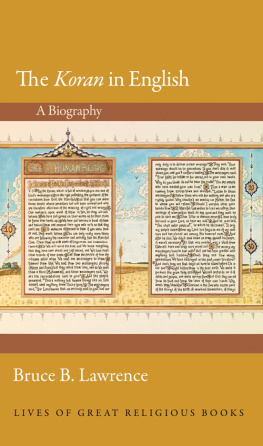


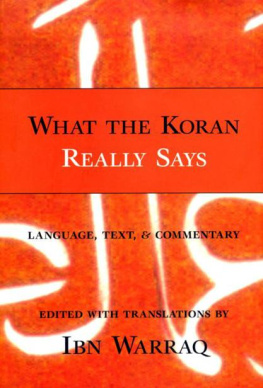
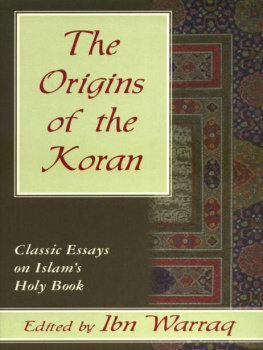













 uestioning the authenticity of the Koranic text these days smacks of blasphemy, of a particularly sacrilegious act with regard to one of the principal dogmas of Islam-if not the most important one, after belief in God and in his Prophet. However, the taboo that envelops the question of the history of the Koran has no theological justification that emanates from the revealed text-nor even a historical rationale, since Muslim Tradition itself relates an imposing mass of information about the very serious problems that have affected transmission of the Koranic text down to our own day.
uestioning the authenticity of the Koranic text these days smacks of blasphemy, of a particularly sacrilegious act with regard to one of the principal dogmas of Islam-if not the most important one, after belief in God and in his Prophet. However, the taboo that envelops the question of the history of the Koran has no theological justification that emanates from the revealed text-nor even a historical rationale, since Muslim Tradition itself relates an imposing mass of information about the very serious problems that have affected transmission of the Koranic text down to our own day.